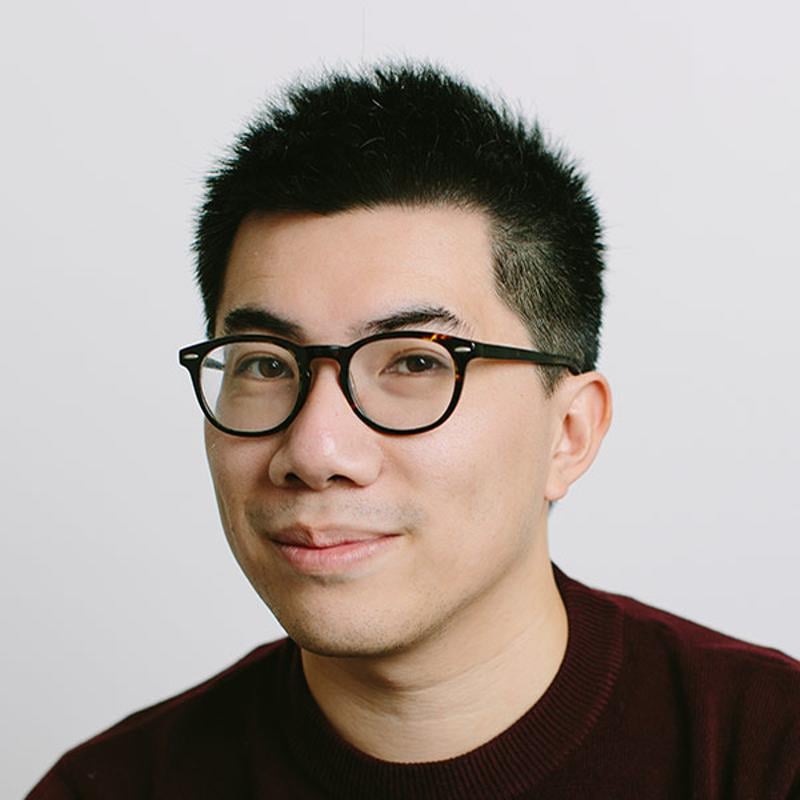On the Monday after the Vancouver election, under a smoky October sky, Ken Sim made his first visit to city hall as mayor-elect.
Vancouverites hit the reboot button at the ballot box, ejecting a mixed-party municipal government in favour of Sim’s ABC party, which swept city council, school board and park board with majorities. Conservative politicians expressed their excitement, including Pierre Poilievre, who praised the police union-endorsed mayor’s plan to “restore safe streets.”
Sim met media at city hall surrounded by soon-to-be-minted ABC politicians. He announced that a transition team had been assembled for the logistics around a handoff of power, the establishment of a new mayor’s office and dialogue with the opposition. It includes former Surrey mayor and BC Liberal leadership candidate Dianne Watts, former Vancouver councillor Tung Chan, a former deputy city manager and ABC’s campaign director.
Policing, of course, was top of mind for the journalists scrumming Sim. While incumbent mayor Kennedy Stewart had voted to reduce the police budget, Sim had pledged to hire 100 new police alongside 100 new nurses, who are intended to work together.
Sim’s party has said that this kind of partnership is a service that Metro Vancouver mayors recently told provincial ministers was in “high demand.”
However, Sim was vague on specifics of how his government will roll it out, claiming it’s too early to say.
Sim said taxes wouldn’t be raised to pay for this and all the party’s other promises, with the nurses and officers likely to cost more than $20 million.
ABC has offered hints of cutting out “discretionary” items, but campaign director Kareem Allam told The Tyee that “when it comes to social services, when it comes to [social and supportive] housing, when it comes to climate, we’re not rolling back any of those.”
There are also no plans for major staff shakeups.
Vancouverites will get their first taste of the new party when the municipal government is sworn in on Nov. 7. The makeup of ABC provides some hint of their possible direction: the party has picked up candidates once aligned with the pro-business, centre-right NPA party and its internal polling shows that the bulk of their supporters are federal Liberals.
This will be Sim’s first time in politics and he’ll have the council support that Stewart struggled without.
But how did Sim, who began his career as a chartered accountant, make his way to the city’s top office?
The mayor-elect didn’t have time to sit down with The Tyee one-on-one for this story, but his campaign director promises an interview when the government is inaugurated. In the meantime, here’s what we know of Sim from our interactions with him and what’s he’s told other media on the road to city hall.
Sim-ple life
In 1967, Sim’s parents left behind a “comfortable” life in Hong Kong to immigrate to Vancouver with three children. They had two more in Canada, the second of whom was Sim, born in 1970.
Sim told The Tyee about his family’s housing insecurity in those early years living in the city’s south. “I went to five elementary schools in seven years because we couldn’t make rent,” he said.
He dabbled in business at eight, buying comic books for a dime and selling them in a different neighbourhood for a quarter.
Sim later attended Magee and Churchill secondary schools on the city’s west side and graduated from the University of British Columbia’s business school in 1993. He worked as an accountant at KPMG and became an investment banker at CIBC World Markets in Vancouver, Toronto and London, U.K.
Bedsides and bagels
In 2001, Sim decided to leave the corporate world behind and become an entrepreneur.
At the time, Sim’s wife Teena Gupta was pregnant with the first of their four children. He saw how difficult it was to find at-home care services and had the idea to start a company providing them himself, called Nurse Next Door.
He got support from Milton Wong, an influential Chinese Canadian who became known in his later years for his formidable philanthropy. Wong had also made it from humble origins into the world of finance. He held community-facing roles too, serving as chancellor of Simon Fraser University. He was a mentor to many, Sim among them, who likened “Milty” to a “second father.” Wong connected Sim with a business partner, provided early investment of $250,000 and sat on the company’s board.
“We were two young guys with no operational experience and none in health care,” Sim told the Vancouver Sun at the time. The company has since become a franchise, with locations in the U.S. and Australia. In 2019, Sim, along with partners, sold the company’s trademark for $52 million.
Sim co-owned and served on the board of another health-care company called CareSource, which started operations in 2003. The BC Liberal government had begun contracting out work that had been done by members of the Hospital Employees’ Union; 750 CareSource staff were placed at eight long-term care homes provincewide. The PressProgress site reported that the company “had a documented history of questionable labour practices and operated at facilities flagged by inspectors for ‘health and safety hazards.’” It was eventually dissolved in 2019.
In 2012, Sim and his wife co-founded Rosemary Rocksalt, a local bagel chain with three locations. One of the other co-founders is Parise Siegel, whose father opened the well-known Montreal-style Siegel’s Bagels in Vancouver.
Sim has sent interested employees to a number of training courses, such as the Landmark Forum’s professional development programs. He has also participated in Landmark Worldwide’s trainings himself and once told the Georgia Straight that it taught him how to “have authentic conversations” and “play big.”
“I’m a great example of that,” he had said. “I could have talked myself out of running for mayor, but I didn’t.”
‘The longest job interview ever’
While Sim popped up in the media time and again for his various ventures, he was a relative unknown when he emerged on the political scene in 2018.
The businessman threw his name into the ring for the mayoral nomination of the business-friendly NPA. With just 11 days of campaigning before signups were cut off, Sim won the nomination.
He had strong support in his bid, which included Lululemon founder Chip Wilson, another mentor of his, and Rocky Mountaineer CEO Peter Armstrong, who was the NPA president.
But when it came to the election itself, Sim lost to the labour-endorsed Kennedy Stewart by a slim 957 votes.
A year later, the NPA was in trouble. It elected a new board that worried some members about the party skewing to the far right. Four sitting councillors and some party directors quit the party.
In 2020, Sim announced his interest in running for mayor again, but as part of a new group. He teased an amazing “kitchen cabinet” of candidates to the Globe and Mail.
In early 2021, A Better City Vancouver was launched as a new party. As they picked up candidates for the 2022 election, many were former NPA supporters who had joined up with ABC, including three sitting councillors.
Kareem Allam became the party’s campaign director, hot on the heels of helping Kevin Falcon win the BC Liberal leadership. Allam’s diverse experience includes helping Watts win the Surrey mayoralty in 2005 and the 2018 Assembly of First Nations race for national Chief, running the campaign for Miles Richardson.
It might be the party’s first election, but it proved to be a strong enough team to take city hall.
There’s been buzz about Sim being the first mayor of colour ever since he entered the political spotlight, something that he’s downplayed both elections. He’s shared about resisting his Chinese heritage in his younger years, particularly in his refusal to learn Cantonese and Mandarin. He has talked about being called a “Chink” and “Chinaman” when he was a child at school in Vancouver.
That being said, in his election night speech, Sim nodded to the historic nature of his win in a city with racist roots, naming a number of Chinese Canadian politicians that paved the way.
Of his journey from defeat to victory, Sim called it “the longest job interview ever.” ![]()
Read more: Municipal Politics

















Tyee Commenting Guidelines
Comments that violate guidelines risk being deleted, and violations may result in a temporary or permanent user ban. Maintain the spirit of good conversation to stay in the discussion.
*Please note The Tyee is not a forum for spreading misinformation about COVID-19, denying its existence or minimizing its risk to public health.
Do:
Do not: